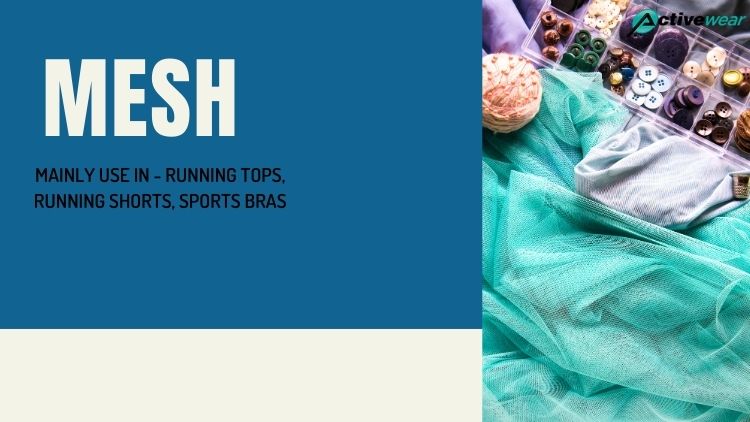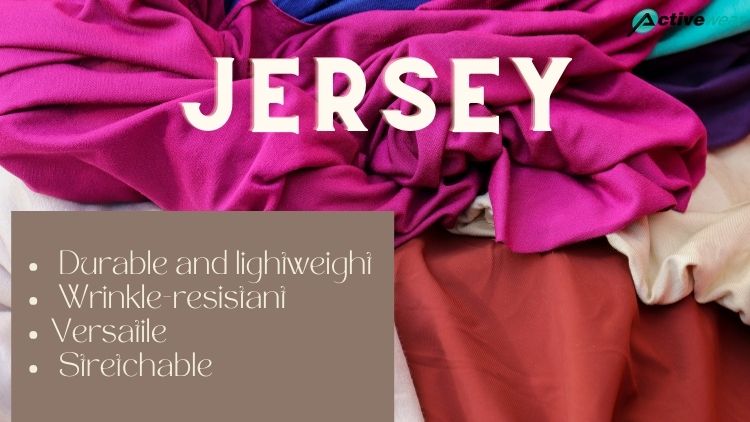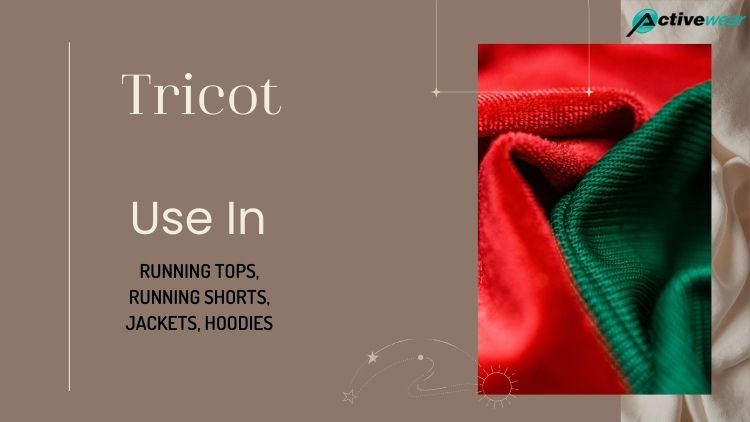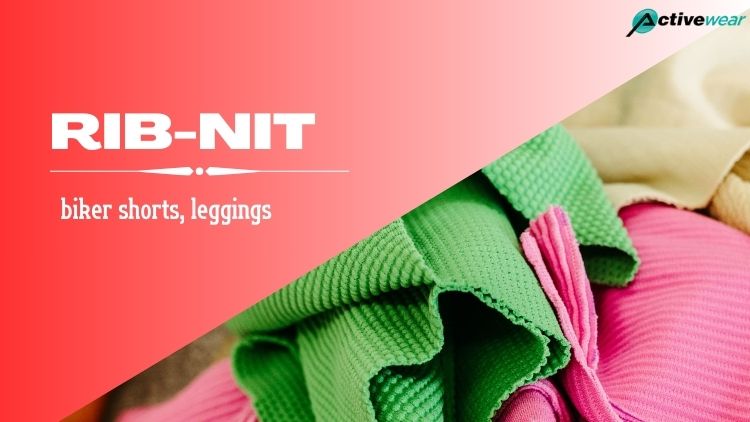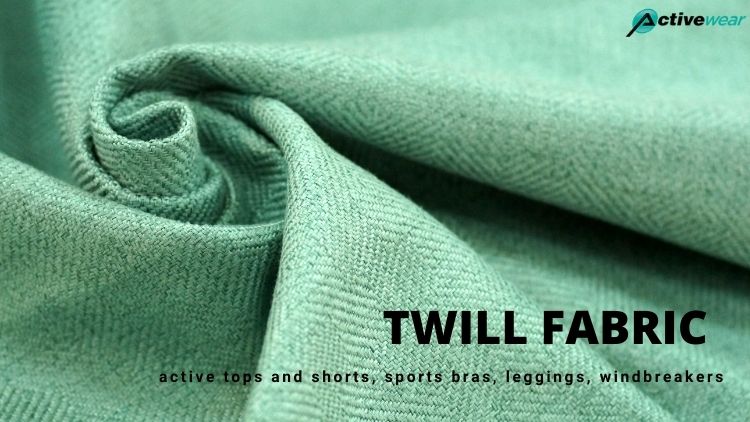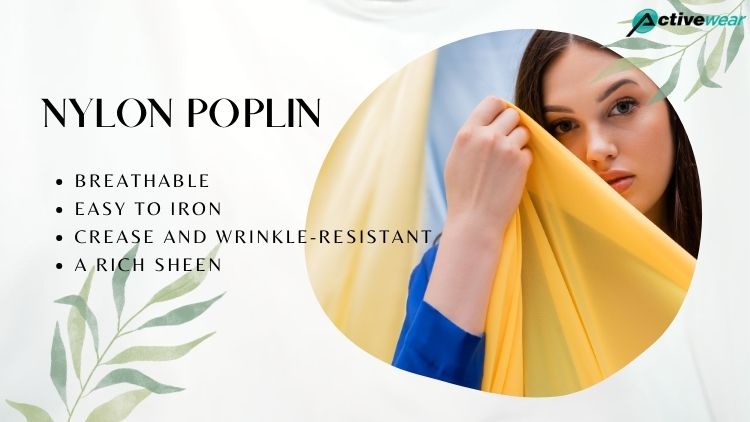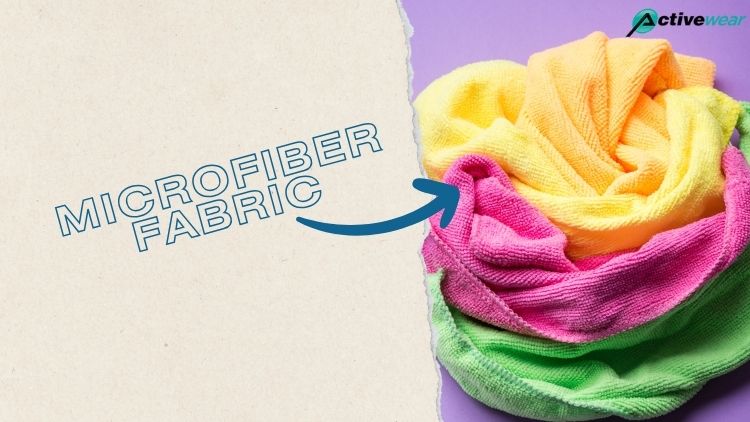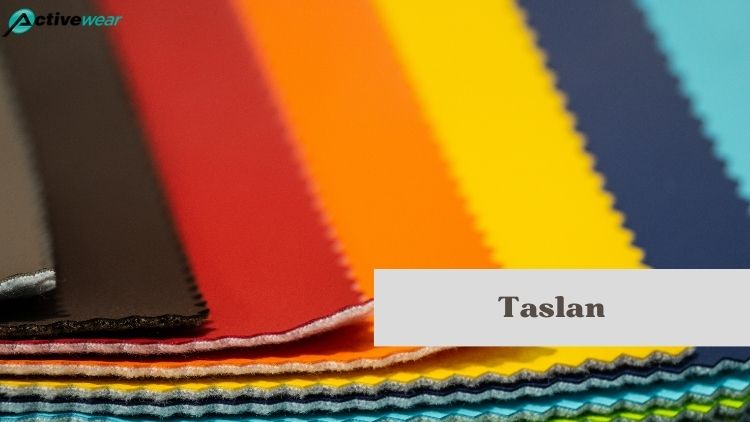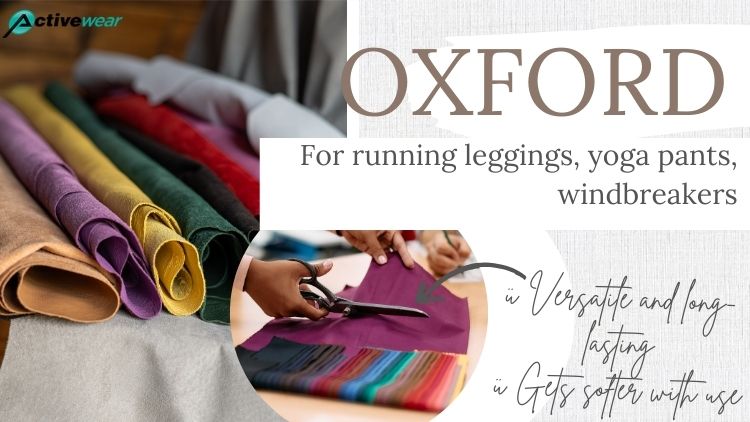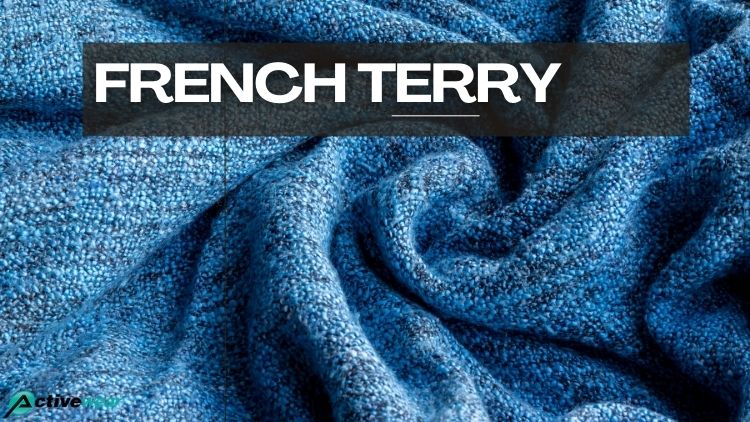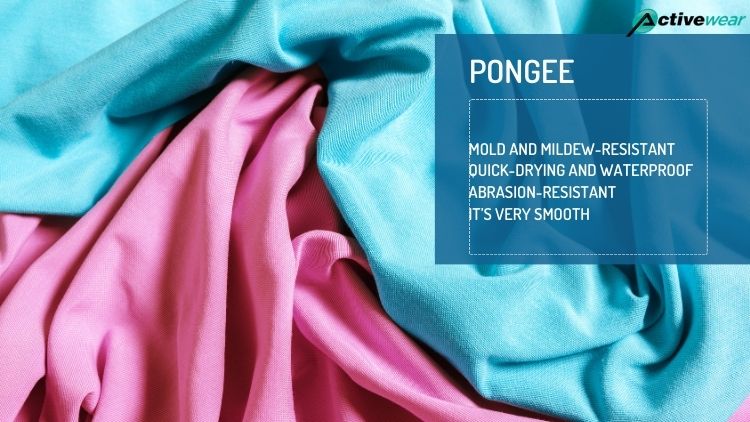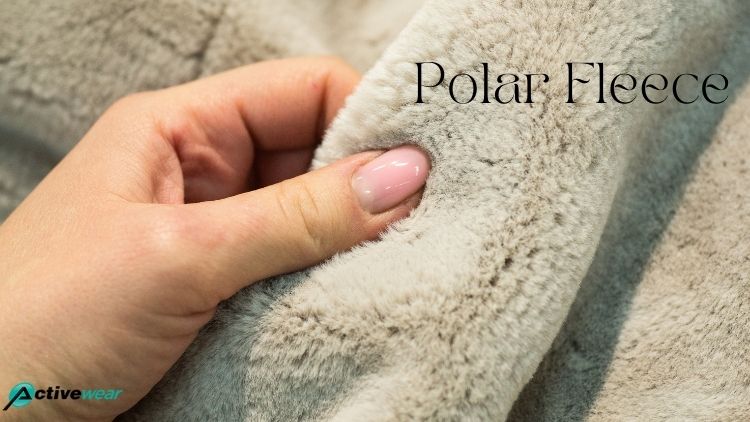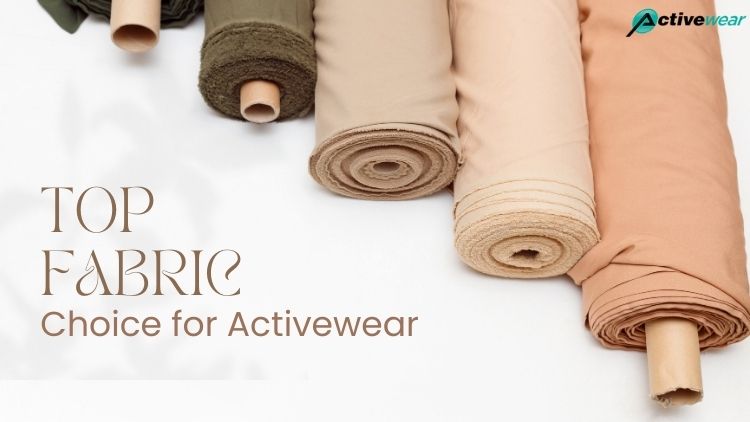
Top Fabric Choices for Activewear: Know Now
If you want to get a great body, the choice of activewear matters. However, a stylish, ‘’temporarily practical’’ fitness clothing piece won’t be able to help you if it’s crafted out of cheap materials. Choosing the perfect fabrics is a must if you want to enhance your performance and extend the lifespan of your workout clothing items.
Before moving on to which are the top fabric choices for activewear, let’s take a look at what to consider and look out for when choosing activewear fabrics.
- Find material features such as movement, lightness, stretch, and properties like anti-mold, breathable, moisture-wicking, and antibacterial.
- Pay attention to activewear materials that are strong, comfortable, durable, stretchable, non-restrictive, and breathable, if you are into sports that need good flexibility and movement like Pilates or yoga.
- Are you indulged in high-intensity workouts? Go for anti-chafe, anti-stink, and high-performance materials. Such fabrics will quickly wick away sweat from the skin and will keep you dry, cool, and comfortable (which is a must for all those crunches, burpees, skaters, Russian twists, etc.).
Now that you are well aware of this department, have a look at this list of fabrics that are best for activewear:
Interlock
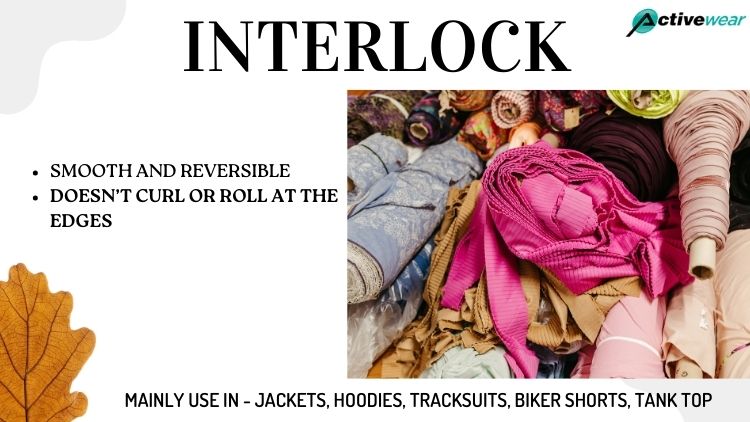
The double-knit construction of interlock materials leads to a thicker fabric that is absorbent, firm, insulant, and soft. The interlock fabric feels very light on the skin and remains breathable. All these features make it an ideal material for activewear.
Benefits:
- Doesn’t curl or roll at the edges
- A naturally stretchable material
- Smooth and reversible
- Has the same texture on both sides
Suggested fitness clothing pieces: jackets, hoodies tracksuits, biker shorts, tank tops.
Mesh
Recognized by its permeable texture, feather-light heft, and net-like open pattern, the mesh material is knitted loosely or woven, which ultimately results in an open-hole structure. These open holes and lightweight properties offer breathable ventilation while remaining long-lasting against tearing or ripping. This makes it a great choice for activewear.
Benefits:
- Wicks sweat away quickly
- Breathable and lightweight
- Mildew resistant
- Long-lasting and resistant to rips and tears
Suggested fitness clothing pieces: running tops, running shorts, sports bras
Jersey
One of the most common forms of weft-knitting is the jersey-knit material. Known for its close knits and stretchability, it’s highly breathable and absorbent which makes it too good for activewear.
Benefits:
- Durable and lightweight
- Wrinkle-resistant
- Versatile
- Stretchable
Suggested fitness clothing pieces: tracksuits, biker shorts, leggings ,running tops.
Tricot
Tricot, a smooth-textured knit material, is often preferred for its fast-drying, liquid-absorbing, and antibacterial properties. This material conforms nicely to the body while retaining its shape. The durable yet lightweight fabric can be blended with yarns of different properties like heat retention or deodorizing to construct activewear with multiple advantages.
Benefits:
- Wrinkle and crease-resistant
- Shape stability and good elasticity
- Resilient and long-lasting
- Breathable
Suggested fitness clothing pieces: running tops, running shorts, jackets, hoodies.
Rib-knit
Rib-knit materials, more elastic and long-lasting than regular plain knits use purl and knit stitches in alternating lowered and raised rows, therefore creating cross-grain elasticity. Often available in a wide variety of weights and textures, the density of the fabric is determined by the knitting stitches’ closeness. When it’s about activewear, consider going for nylon or polyester rib-knit fabrics.
Benefits:
- Interesting ribbed texture
- Durable and elastic
- Super soft on the skin
- Not easy to wrinkle and crease
Suggested fitness clothing pieces: biker shorts, leggings
Twill
The yarns in twill are packed together closely which gives it the signature thick pattern of diagonal parallel ribs. It’s a plain weave material. Usually, materials made with a twill weave come with a front and back side with the front being more pronounced, long-lasting, and visually appealing. For weather-proofing and water properties, twill materials can be treated with a long-lasting water-resistant finish to resist rain and wind.
Benefits:
- Stain-resistant
- Comes with fewer creases and wrinkles
- Opaque
- Long-lasting
Suggested fitness clothing pieces: active tops and shorts, sports bras, leggings, windbreakers.
Nylon poplin
Constructed with a tightly woven plain weave, poplin is a strong, long-lasting material. Originally crafted in 15th C France with a wool weft and silk warp, the poplin materials that are used these days are available in a broad variety of derived materials like nylon, Lycra, polyester, silk, and cotton. Breathable, durable, lightweight, and thin, nylon-blend poplin materials are great for making active jackets. Why? This is because the nylon content lets the material dry quickly.
Benefits:
- Breathable
- Easy to iron
- Crease and wrinkle-resistant
- A rich sheen
Suggested fitness clothing pieces: fitness shorts, windbreakers
Microfiber
Microfiber is a popular choice for making activewear. Water-repellent, absorbent, and long-lasting, the nature of this fabric is to wick moisture away from the skin. It helps you to remain dry and cool from perspiration (which can be very comforting). Nobody likes to drown in his or her sweat while exercising after all!
Being stretchable and elastic, this fabric also offers you a full range of motion during workouts.
Benefits:
- Soaks sweat away from the skin
- Water-repellent and moisture-wicking
- Durable yet lightweight
- It’s pretty soft to the touch
Suggested fitness clothing pieces: tracksuits, windbreakers
Taslan
Treated with hydrophobic and water-repellent properties, the porous structure of Taslan lets vapor and heat dispel from the material while making it resistant to grease, rain, wind, and stains. A resilient material with wear and weather resistance and strength while retaining its vapor and breathable permeability, Taslan is also resistant to UV rays. Imagine working out in such activewear out in the sun! No skin-burn!
Benefits:
- Rain and wind resistant
- Durable and strong
- Stain-resistant
- Sweat-wicking
Suggested fitness clothing pieces: active pants, windbreakers
Oxford
Soft, lustrous, and light, this fabric displays a basket weave structure crafted by weaving multiple yarns together in a crossed horizontal and vertical direction. With threads passing in one direction dyed while the others are left white, thin yarns are woven over a thicker filler yarn, therefore creating a thicker material with an innovative checkerboard look and a fine texture.
Benefits:
- Versatile and long-lasting
- Gets softer with use
- Resistant to wear and damage
- Wrinkle-resistant
Suggested fitness clothing pieces: running leggings, yoga pants, windbreakers
French Terry
French Terry showcases a loosely woven, thread-looped inner and a smooth knitted outer side, which gives it the other name, ‘loopback’. Often lighter than traditional materials, the looped backing offers a touch of warmth without being bulky, which makes for exceptionally light activewear that is also great for layering.
Benefits:
- Easy to care
- Wrinkle resistant
- Lightweight
- Moisture-wicking
Suggested fitness clothing pieces: jackets, hoodies, tracksuits
Pongee
Do you know Pongee was originally named after a sheer material in China?
Today, this fabric is known as a lightweight, durable woven material with a look of fine warp yarns and irregular filing. Tightly woven, long-lasting, and sturdy, pongee is mold and mildew-resistant. Additionally, it dries quickly. Being a durable material, pongee is particularly great for windbreakers as it offers comfortable and light protection from rain and wind while allowing breathability.
Benefits:
- Mold and mildew-resistant
- Quick-drying and waterproof
- Abrasion-resistant
- It’s very smooth
Suggested fitness clothing pieces: fitness shorts, windbreakers
Polar fleece
Constructed by creating a brushed back and a cut-pile surface, polar fleece is generally crafted from lightweight, polyester fiber. Cozy, warm, and soft, polar fleece can be layered with a windbreaker or worn alone to offer additional warmth in windy and cool conditions.
Benefits:
- Can be worn all year round
- Long-lasting and lightweight
- Fast-drying
- Soft and plush
Suggested fitness clothing pieces: tracksuits, hoodies
MAKE SURE TO AVOID…
COTTON
Undoubtedly, cotton is the best fabric when it comes to clothing for casual wear and formal wear. However, it’s far from being good when it comes to activewear. Being a hydrophilic material, it holds a lot of water and takes a lot of time to dry (yes, imagine those gym sessions when you will be all dripping wet from head to toe, eew!) To add to it, cotton activewear can also lead to hypothermia in cold weather and chafing in hot weather. You don’t want any of these, do you?
To get the most out of your workout sessions, always stick to sweat-wicking, lightweight, and breathable materials suggested in the list above.

